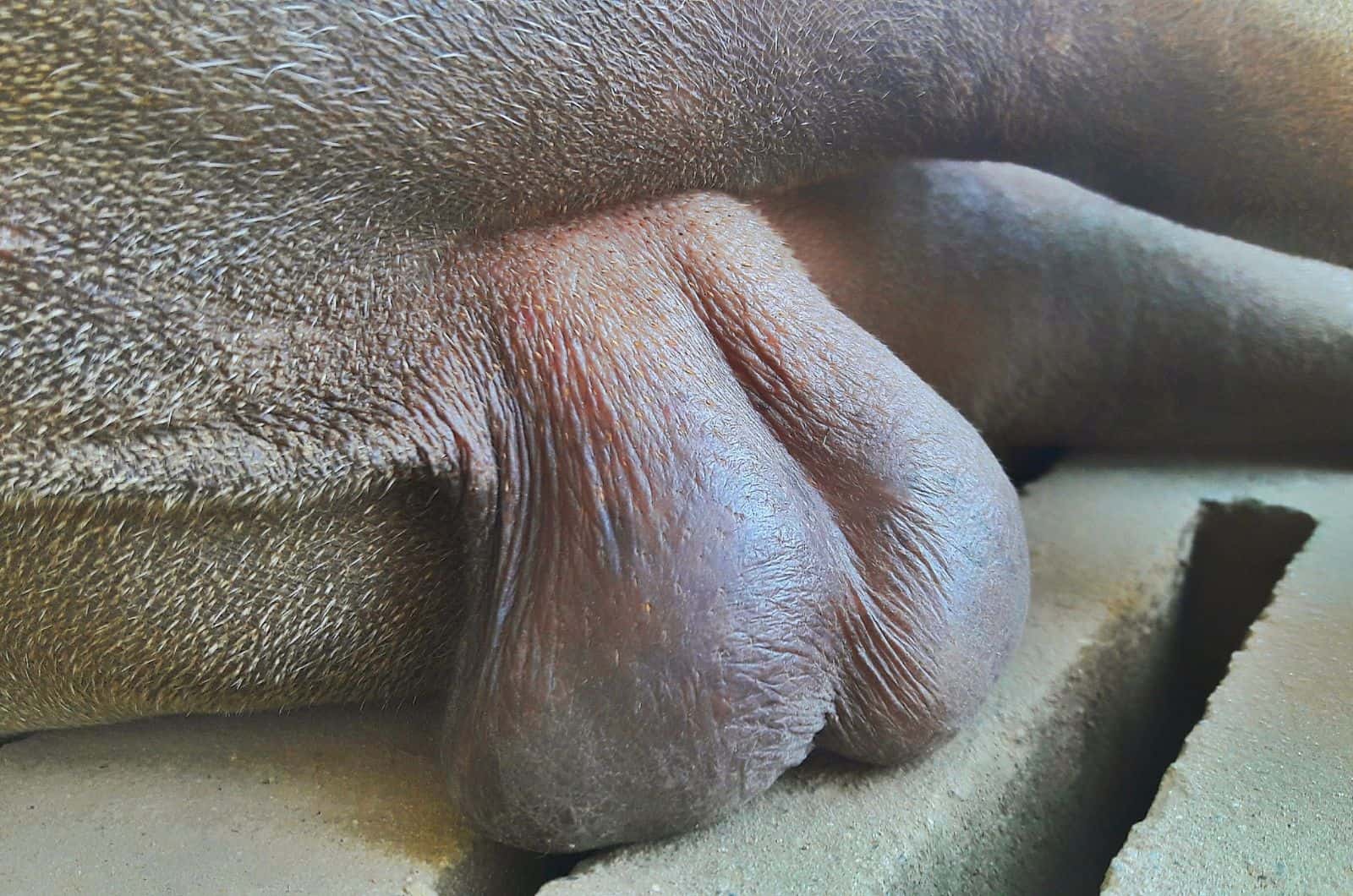Dog abortion isn’t a topic many people think about, but it still might end up being a necessary one. If your dog has an unwanted pregnancy, you have a few options.
One option that most dog owners opt for is to wait until their dog gives birth before they place the puppies up for adoption.
However, waiting for potential new owners to appear can take too long, and not everyone has the luxury of time. Unfortunately, this is how we end up with so many abandoned dogs on the streets.
While dog abortion is a sensitive topic for many, some would argue that it’s a better choice than leaving young puppies outside to die.
Sometimes, dog pregnancies can be dangerous for the mother dog. On such occasions, the smartest thing is to terminate the pregnancy before it causes health problems for the mother or even the death of her and the puppies.
There are several methods of pregnancy termination for dogs, but not many people understand their options, the cost of dog abortion, and the legalities of these methods.
Here’s what you need to know about dog abortion:
Can You Terminate A Dog Pregnancy?

Female dogs that are pregnant can undergo an abortion as a way to terminate pregnancy. This is a procedure done by various veterinarian solutions that can be medical or surgical.
The main cause of dog abortion is mismating or accidental mating that happened when a female dog, also known as a bitch, was in heat. It is always performed with veterinary supervision.
Is Dog Abortion Legal?
Dog abortion is legal in most North American states, as well as in most countries worldwide. Most veterinarians (DVMs) will offer ways to end an unwanted pregnancy, and you should always consult them to see your options.
Keep in mind that not all vets are experts in this field. Also, some will claim ethical incompatibility and refuse to end a pregnancy that is too far along, although there is no law that limits this.
Veterinarians also have the right to refuse to abort the pregnancy if you don’t allow them to spay the female dog. This is to prevent further unwanted pregnancies from happening again.
However, this isn’t a legal norm, and it is up to the vet to decide whether they want to accept to perform a dog abortion or not.
Causes Of Dog Abortion

Of course, a simple answer would be that the cause of dog abortion is canine pregnancy, but let’s look at things a bit more in-depth.
Overall, there are very few cases where a pregnancy is dangerous for the dog’s health. Nature does things well enough that dog pregnancies are mostly safe and don’t endanger a female dog. As such, the termination of pregnancy is usually conducted for the owner’s convenience.
It isn’t rare that a female dog wanders off during heat. If there is a suspicion or confirmation that coitus occurred, a dog owner might decide that they aren’t ready to care for the puppies.
If it is confirmed that the owner has been left with a pregnant dog, they might decide to have that pregnancy terminated.
Although not as common, sometimes unwanted pregnancies can happen in breeding kennels or multi-dog households in which owners don’t have control over the timing of the dog’s heat cycle.
These breeders and owners tend to fail to separate the stud from the bitch in heat, so the dogs will breed without supervision.
This is especially bad for breeders, who tend to carefully plan which dog will mate with which. This mismating can result in puppies that don’t meet the breeder’s standard, so they decide to terminate these pregnancies.
Dog Abortion Methods

If you decide on a dog abortion, the first thing you need to do is to take your dog to the vet, who will confirm the pregnancy.
The best way to do so is to conduct an echography at 25 days of gestation or opt for a blood test (also known as relaxin test) that can be tested as quickly as 22 days. Keep in mind that if the blood test comes out negative, you should repeat it a week later to confirm the diagnosis.
Here are some of the dog abortion methods your vet might suggest, depending on the day of the pregnancy:
Ovariohysterectomy
The most common method of dog abortion is an ovariohysterectomy, or spaying of a female dog.
This means that a vet will perform surgery to remove the dog’s uterus and ovaries. This will not only get rid of unwanted puppies but also eliminate the chances of pregnancy happening ever again.
However, many health risks come with performing a spaying surgery on a pregnant bitch. First off, the dog’s blood vessels are engorged, which means that the vet will have to be very careful not to harm the dog.
This will make the procedure longer, which will increase the risk of complications due to anesthesia. The longer the dog is under, the greater the risk of her not waking up.
Finally, if the pregnancy is very far along, the puppies might be fully formed. If this is the case, they will have to be individually euthanized, which is not just costly but also considered inhumane.
Dog Abortion Pill
The dog abortion pill is actually dexamethasone, which can be administered orally twice a day after the 30th day of pregnancy. It might have to be administered for more than ten days to ensure the expulsion of all the fetuses.
However, there is a catch. Dexamethasone is a potent corticosteroid, and there might be risks to taking prolonged corticotherapy. This includes:
• Immune system suppression
• Predisposition to infection
• Excess water intake and urination (polyuria)
• Constant hunger
• Restlessness
If the dosage doesn’t adjust properly, your dog might even show signs of medically-induced Cushing’s disease!
As such, female dogs that have pre-existing health conditions such as Cushing’s disease, bone marrow suppression, or diabetes should not receive this type of treatment.
Oral Estrogen

This is another form of pill used by veterinarians to terminate canine pregnancies. However, it isn’t as effective as estrogen pills in humans.
Oral estrogen pills can only be taken in the first few days into the pregnancy, and it highly increases the risk for pyometra, a potentially deadly uterine infection.
Because of the high risks associated with it, oral estrogen is rarely used, and most veterinarians will avoid it.
Dog Abortion Shot: Prostaglandins
Prostaglandins are a group of lipids that the body creates at sites of infection or tissue damage to minimize the consequences of an infection or injury. They help control processes such as blood flow, inflammation, blood clot creation, and the induction of labor.
A form of prostaglandin, prostaglandin F2 alpha, is injected 3 times per day until all of the dog’s fetuses have been successfully expelled. This process can last up to 14 days but usually ends much faster.
If you associate this type of prostaglandin with intravaginal prostaglandin, you might be able to reduce the treatment time, as well as any secondary symptoms that might occur, such as nausea, diarrhea, tremors, and restlessness.
However, the chances of overdose are high, which is why a vet must carefully control the intake and dosage.
Antiprogestins
Antiprogestins are synthetic steroids that bind to progesterone receptors, preventing progesterone from functioning. They prevent any pregnancies from continuing if taken daily in the form of injections.
The issue with antiprogestins is that they should be used for the early stages of pregnancy only. They shouldn’t be used if the pregnancy is later than 45 days.
If a female dog has been pregnant for more than 20 days and is given antiprogestins, she might experience severe symptoms such as fetal expulsion with severe blood loss, mammary congestion, bloody vaginal discharge, and anorexia.
Also, antiprogestins tend to be very expensive, which is another reason they are rarely used.
Prolactin Inhibitors
Prolactin inhibitors are agents that help inhibit prolactin production. Prolactin is a hormone that stimulates milk production after a female dog has gone through labor.
Whether you administer them alone or combined with prostaglandins, they can be an efficient way to stop an unwanted pregnancy.
They are given daily as oral pills, and they should be given until the pregnancy is stopped.
Aglepristone
Aglepristone is another progesterone antagonist used for pregnancy termination for its abortifacient properties. It can also be used to schedule an elective cesarean section.
Aglepristone is a fairly safe treatment, as it has no effects on further fertility. It can be used in various stages of pregnancy, no matter how far from the last heat cycle your dog is.
How Far Along Can A Dog Have An Abortion

Technically, if it’s necessary, a veterinarian can complete a dog’s pregnancy at any stage. The only thing that might change is the method of termination. For example, in late pregnancy, medication and pills might not be effective, so the only remaining option is surgery.
Because of this, if you’re a breeder interested in dog abortion, a veterinarian will always advise against it if a dog is in the second half of the pregnancy.
Dog Abortion At Home
While some of the methods we’ve mentioned can be administered at home, you should never attempt dog abortion unsupervised without consulting a vet.
A badly done dog abortion can have serious implications on the dog’s health, as well as the health of her reproductive system. Also, some medications used for humans have high toxicity levels that pet owners aren’t aware of.
A dog abortion is a procedure with many possible complications, so it should only be conducted by medical professionals.
Aftercare
No matter what dog abortion method you’ve chosen, your bitch will feel ill for a while after the pregnancy has been terminated. For how long depends on the method.
For example, if your vet decided on antiprogestins, they can stay in the dog’s system for up to 24 days after the last dose. This is because they are lipophilic, and their effects will persist long after the abortion has been completed.
The recovery after spaying can also last for quite some time, depending on how well the surgery went.
The aftercare during the recovery process will depend on the method; however, a few things stay the same.
You should make sure your female dog stays in a quiet, cozy, and clean environment until she recovers entirely. Look out for any signs of nausea, as this is the first sign that something is wrong.
Your vet might give you some supplements you should give your dog during the recovery period. This will provide the nutritional support dogs need to start feeling better.
Also, give your dog lots of fresh water so she can drink whenever she feels like it. This is especially important if the method you’ve chosen is dexamethasone.
If your dog was spayed, the vet will give you anti-inflammatory drugs and antibiotics. There might be special care required that will keep the sutures dry and clean.
Look out for any vaginal discharge, especially if it’s bloody. This might indicate pyometra or other conditions that might endanger your dog’s life.
How Much Is A Dog Abortion?

If you decide to conduct an ovariohysterectomy on a dog that is no more than 15 days pregnant, most vets will charge the same for a dog abortion as they would regular spaying.
This is because the fetuses are so small that they won’t interfere with the procedure.
Drug-induced dog abortions are usually much cheaper than more invasive methods. Depending on certain factors, such as the dog’s size and your area’s economic status, this should cost you between $100 and $700.
This price includes abortion medication, medication for the symptoms, as well as bloodwork and ultrasound control expenses.
The price might vary depending on how long the process takes. Sometimes, an abortion shot should be given only a few times. Other times, a vet might have to give it daily over a span of two weeks. This usually depends on the litter size, pre-existing health conditions, as well as anatomical conformation, and the dog’s size.
However, if your dog is in late pregnancy, these prices can skyrocket. The total costs, including drugs and hospitalization, might end up costing you up to $3,000!
Can You Give Human Abortion Pills To Dogs?

Unfortunately, veterinarians have reported that a fairly large number of dog owners tried giving human abortion pills to dogs, which is an extremely dangerous and ineffective thing to do.
Human abortion pills not only aren’t effective, but they can harm a dog’s health and even endanger her life. No pet care expert would ever recommend using this method.
First off, if you give your dog a human abortion pill, there will be no medical guidance over the process. A vet won’t be able to monitor your dog to make sure she is alright and that everything is going according to plan.
Secondly, these drugs have severe side effects even for humans, so you can hardly imagine what they could do to a dog’s body.
Finally, so-called Plan B Pills aren’t 100% effective, and there is no way to know if they worked or not without taking your dog for an ultrasound or blood work – and keep in mind that most of the time, they don’t work on dogs.
Not to mention that you won’t be able to take precautions for adequate dosage control, meaning there is no way to minimize side effects. If a dog were to take a human abortion pill, she would also have to take antibiotics or antiemetic drugs that would have to be prescribed by a veterinarian.
While it might be possible to use these drugs under veterinary supervision, no vet would ever willingly agree to use them, as there are many other safer options if you’re going to pay a professional.
If you take these drugs and give them to your dog without supervision, you might end up causing serious harm to your dog. This might even end up with reproductive emergencies, such as pyometra.
Spontaneous Abortion In Dogs

Spontaneous abortions or miscarriages are very rare in dogs. This is especially the case if mating occurred in a controlled environment, such as a professional breeding kennel.
The most common cause of spontaneous abortions is hormonal imbalances that cause fetal death. Some clear signs include abnormal bloody vaginal discharge, sometimes followed by an expelled fetus.
Another cause could be parasites, fungal infections, or bacterial infections.
Fortunately, medicine has advanced so that various tests can detect the presence of these microorganisms, ensuring that the pregnancy is as healthy as possible.
How To Prevent Dog Pregnancies

photo from: @mayathehalfsheeb
The best way to prevent dog pregnancies is to spay your female dogs and neuter male dogs. This will make dogs physically incapable of conceiving, ensuring no unwanted litters in the future.
If you don’t want to fix your dog for any reason, then the only way to prevent pregnancies is to prevent unwanted mating.
Follow your dog’s estrous cycle so you know when your female dog will be in heat. When she is in heat, keep her away from any male dog that might be nearby.
Keep in mind that dogs are escape artists, especially during mating season. Also, if you keep your female dog outside, a smaller male might sneak through the fence. A few minutes are all it takes for pregnancy to occur. This might force you to visit the vet for a dog abortion.
Even though dog abortion is possible, it carries a great risk for the dog’s health. Because of this, it’s always better to prevent unwanted dog pregnancies instead of finding ways to terminate them once they have already happened.
If you end up with an unwanted litter, never abandon the puppies on the street. If you cannot find them a new home, many shelters will gladly help you by taking the puppies in.
Young puppies cannot take care of themselves, and leaving them on their own is the worst possible thing you can do for them.
There is a moral dilemma whether it is better to have a vet perform a dog abortion or to let the puppies be born and then give them to a shelter.
While we might agree that the best option would be to find a new home for unwanted puppies, there are already too many dogs on the streets. As such, some experts think that dog abortion is the more humane option in the long run.
Either way, the most important thing is that the termination of the pregnancy is done by an expert with experience in the matter. This way, you can be certain that the female dog’s health won’t be compromised.
Read Next:
• How To Tell If Your Dog Is Pregnant? 14 Signs
• Valley Fever In Dogs – Symptoms And Treatment













